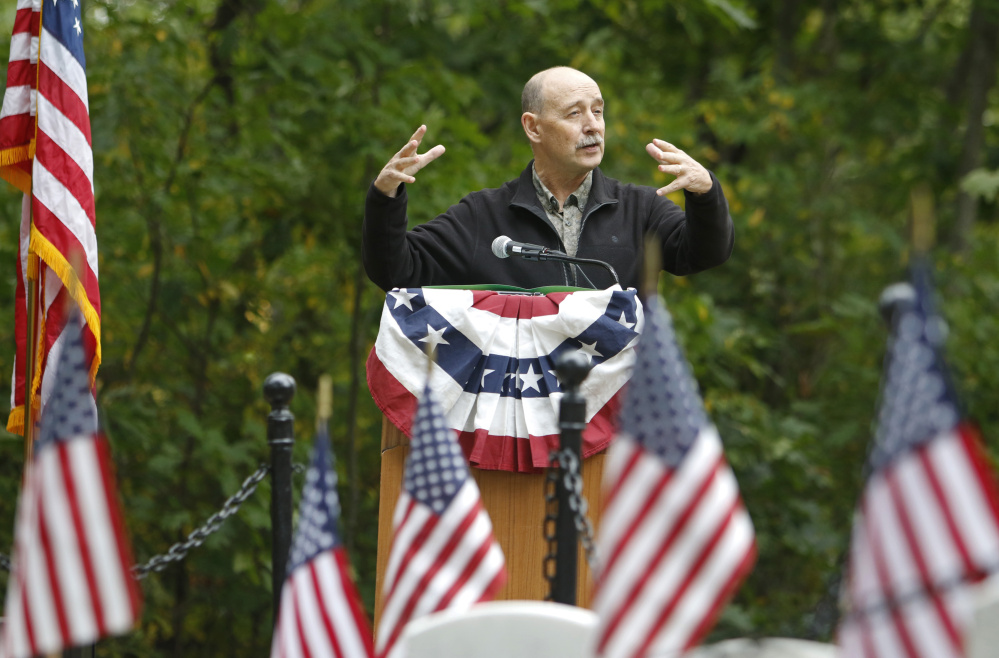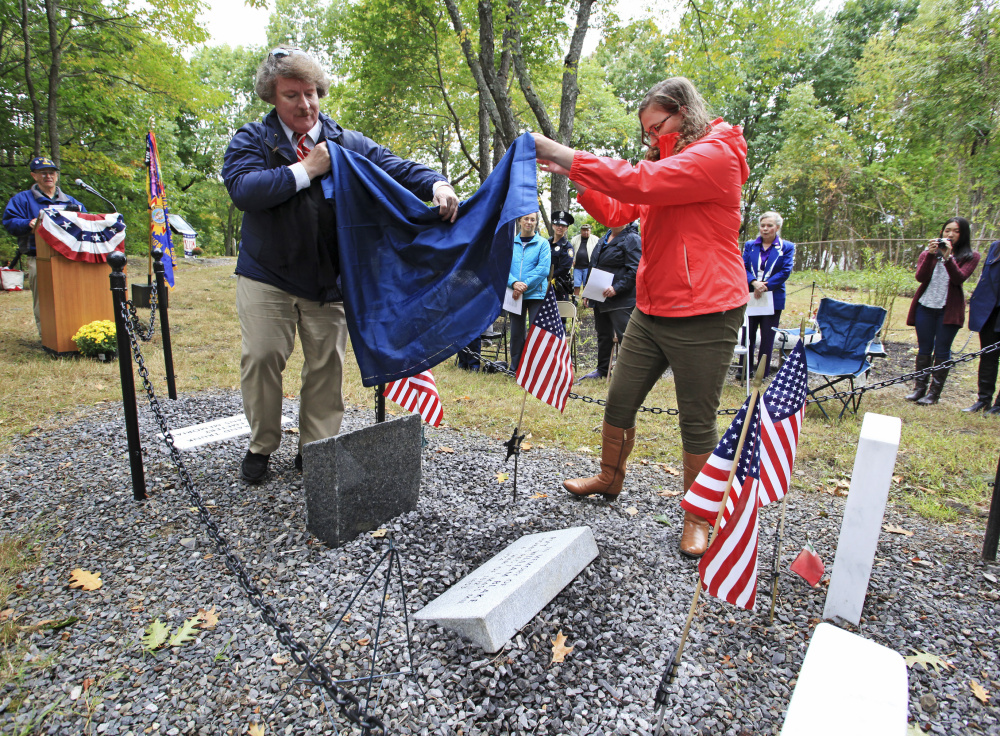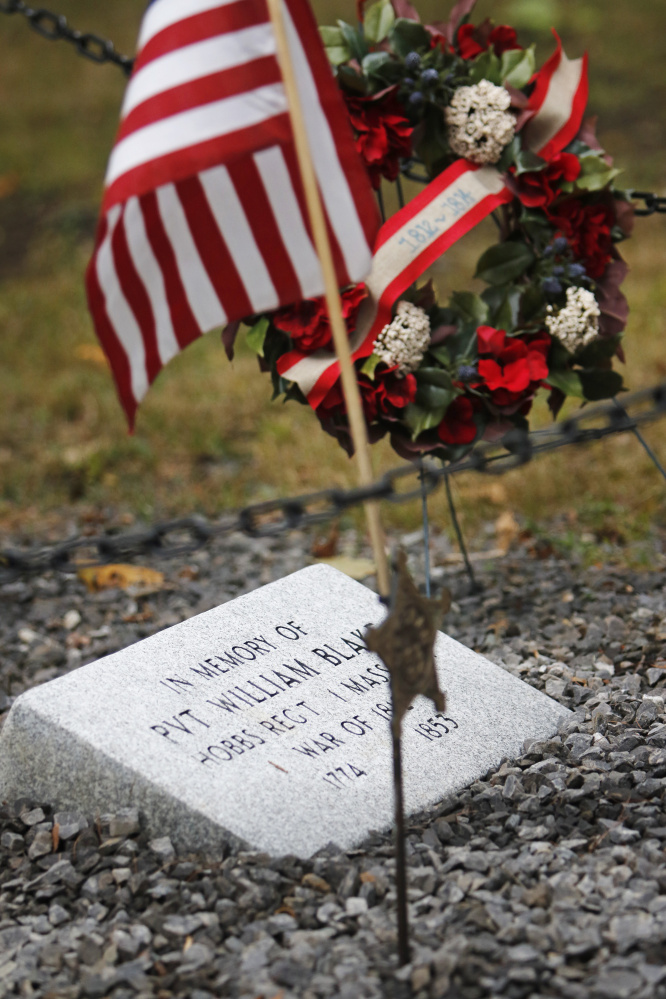A veteran of the War of 1812 was honored Sunday at a once-forgotten Portland cemetery next to Presumpscot Elementary School in East Deering.
The Friends of the Grand Trunk Cemetery unveiled a grave marker in memory of William Blake, who was born March 6, 1774, and served as a private in a militia in a Massachusetts regiment called up to defend the port of Portland in September 1814.
Blake was one of eight War of 1812 veterans, including his nephew Samuel Blake, who are buried at the cemetery, which was used for burials in the 1700s and 1800s.
The ceremony included an honor guard provided by the VFW Deering Memorial Post 6859. Speeches were made, a poem was read and then everyone sang “The Star-Spangled Banner,” penned by Francis Scott Key at the height of the War of 1812.
The cemetery nearly disappeared into the woods before it was reclaimed by Portland Girl Scouts Samantha Allshouse and Kayla Theriault as their Girl Scout Gold Award project in 2010. After four years of restoration efforts, the cemetery was rededicated in 2014. Research has continued to identify the 197 people buried there, much of it done by Marianne Chapman, the Girl Scout leader who coordinated the cemetery restoration.
Four dozen people buried at the cemetery have been identified so far. Chapman is continuing to pick away at finding more.
“I really feel like a novice,’ she said.
She learned that Blake was the youngest son of 12 children born to John and Dorothy Merrill Blake. He was born in what is known today as East Deering and was probably a farmer. Blake was married twice, to Lucy Hodgdon, who died in 1807, two years after their marriage, and to Sarah Eaton, who died in 1843 after 33 years of marriage.
After his second wife’s death, Blake was declared of unsound mind, and his property was sold off to support him during his remaining days at the Portland Alms House. It is believed he died in 1853 at age 79.
Blake and his wives were buried at the Grand Trunk Cemetery, a small burial ground for early settlers around the eastern Back Cove.
The cemetery, also known as the East Deering Cemetery and Presumpscot Street Cemetery, was named for the Grand Trunk Railway that once ran past it.
Larry Glatz of Portland, a retired teacher and historian with an interest in the War of 1812, said Blake’s war has been largely forgotten.
“It has almost vanished from our memories,” he said.
But the war was meaningful to Maine, which did not particularly relish fighting its largest trade partner with a military freshly pumped up by its defeat of Napoleon.
“The lifeblood of the Maine economy was trade with the British,” Glatz said.
The conflict quickly caused Maine’s economy to collapse, and many refused to participate in America’s defense. Two years into the three-year conflict, the British had taken Eastport and Belfast without a fight and won a battle in Hampden.
“At the time these soldiers were ordered into service, half of the state was under British control,” Glatz said.
Then for a week or two in September 1814, it appeared that Portland was next and preparations were made for an invasion.
“It was quite a frightening time,” Glatz said.
In all, Maine raised 15,000 men for the war effort, many of them without weapons, Glatz said.
The threat of invasion passed, and the two sides settled the war with nothing changed.
“Everyone forgot what it was like in September 1814,” he said.
Glatz said only a tiny fraction of those who served in the War of 1812 ever received recognition in the form of military benefits.
“So I am hoping today we can give them a small amount of the memory and recognition they deserve. Don’t forget these fellows,” he said.
Send questions/comments to the editors.





